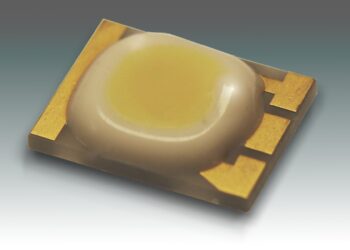Intel has announced the launch of its latest quantum research chip, Tunnel Falls. The 12-qubit silicon chip will be made available to the quantum research community, contributing to advancements in quantum computing. Intel has also formed a collaboration with the Laboratory for Physical Sciences (LPS) at the University of Maryland, College Park’s Qubit Collaboratory (LQC) to drive further research in quantum computing.
Tunnel Falls represents Intel’s most advanced silicon spin qubit chip to date, benefiting from the company’s expertise in transistor design and manufacturing. This release aligns with Intel’s long-term strategy of developing a comprehensive commercial quantum computing system. While there are still challenges to overcome before achieving a fault-tolerant quantum computer, the availability of this chip to the academic community will facilitate exploration and research in this field.
The significance of Tunnel Falls lies in providing academic institutions access to high-volume manufacturing fabrication equipment, which is typically unavailable to them. By eliminating the need for researchers to fabricate their own devices, Tunnel Falls enables them to focus on experiments and research immediately. This expanded access opens up new possibilities, including the study of qubits and quantum dots fundamentals and the development of techniques for working with multiple qubit devices.
To address this accessibility gap, Intel has partnered with LQC as part of the Qubits for Computing Foundry (QCF) program, in collaboration with the U.S. Army Research Office. The collaboration aims to provide Intel’s new quantum chip to research laboratories, facilitating exploration of silicon spin qubits. LQC’s participation will allow researchers to gain hands-on experience working with scaled arrays of qubits, contributing to workforce development and fostering new quantum research opportunities.
The initial quantum labs participating in the program include LPS, Sandia National Laboratories, the University of Rochester, and the University of Wisconsin-Madison. LQC will work alongside Intel to extend the availability of Tunnel Falls to additional universities and research labs. The insights gained from these experiments will be shared with the wider community, driving advancements in quantum research and helping Intel enhance qubit performance and scalability.
Tunnel Falls, Intel’s first silicon spin qubit device released to the research community, is fabricated on 300-millimeter wafers in the D1 fabrication facility. The chip benefits from Intel’s advanced transistor industrial fabrication capabilities, including extreme ultraviolet lithography (EUV) and gate and contact processing techniques. With the information encoded in the spin of a single electron, each qubit device serves as a single electron transistor, allowing Intel to fabricate the chip using a similar process flow to standard complementary metal oxide semiconductor (CMOS) logic processing lines.
Silicon spin qubits are considered promising due to their compatibility with cutting-edge transistors. These qubits are significantly smaller, up to 1 million times smaller than other types, enabling efficient scaling. The use of advanced CMOS fabrication lines allows Intel to employ innovative process control techniques, ensuring high yield and performance. For instance, the Tunnel Falls 12-qubit device boasts a 95% yield rate across the wafer, similar voltage uniformity to a CMOS logic process, and each wafer accommodates over 24,000 quantum dot devices. These 12-dot chips can form between four to twelve qubits, depending on the specific operating configuration of the university or laboratory.
Intel will continue refining the performance of Tunnel Falls and integrating it into the Intel Quantum Software Development Kit (SDK). The company is already developing its next-generation quantum chip based on Tunnel Falls, with an expected release in 2024. Intel also plans to establish partnerships with additional research institutions globally to further strengthen the quantum ecosystem.
With the release of Tunnel Falls and its collaborative efforts, Intel is actively contributing to the progress of quantum computing research. By making quantum research more accessible and supporting practical quantum applications, Intel aims to shape the future of this transformative technology as the quantum computing landscape continues to evolve.








